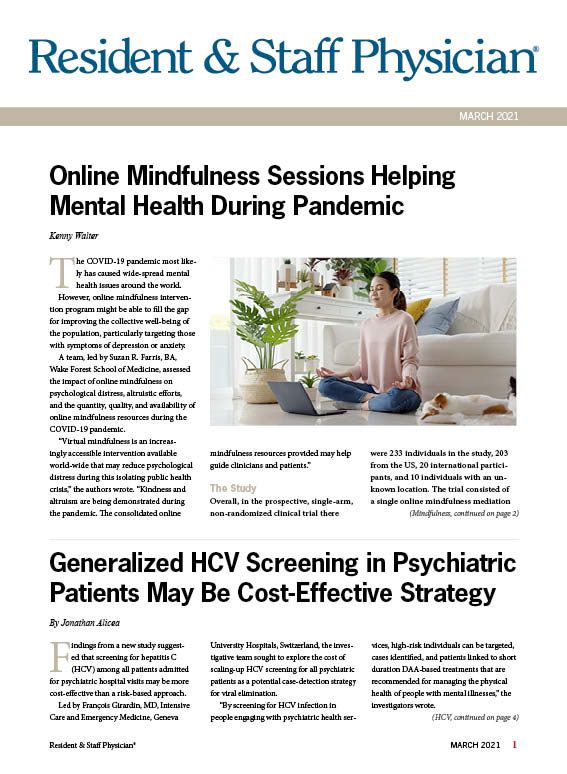Study Sheds Light on Pediatric Depression in Sickle Cell Disease
Older age and higher education level were significantly linked with increased depression scores.
Osita Uchenna Ezenwosu, PhD

A new study from Nigeria found that depression in young patients with sickle cell disease (SCD) was linked with increasing age and education level.
Led by Osita Uchenna Ezenwosu, PhD, Faculty of Medical Sciences, University of Nigeria, the investigative team conducted a cross-sectional study with adolescents and children with sickle cell anemia (SCA), all of whom were attending the weekly sickle cell clinical at the University of Nigeria Hospital. All participants were aged 7 – 17 years old.
“While depression has been shown to be the commonest of the psychosocial problems experienced by people with SCA, some factors may explain the presence of depression in children with SCA,” they wrote, indicating disease severity, age, gender, educational level, and family socio-economic status as potential contributing factors.
Pediatric Depression in Sickle Cell
The team evaluated 84 pediatric patients with SCA, each matched 1:1 by age and sex to controls recruited from the outpatient clinic.
Depression was measured using the children depression inventory, which consisted of 27 items related to negative mood, interpersonal problems, ineffectiveness, negative self-esteem, and anhedonia.
Each option was scored 0-2 with the highest possible score being 54. Any score ≥ 19 was considered clinical depression.
The investigators also use relevant questionnaires to gather information on clinical disease severity and socio-demographic data, including personal characteristics and education level of parents.
As such, they reported that 45.2% of sickle cell patients and 47.6% of controls belonged to the middle socioeconomic class.
Among the patients with SCA, the mean depression score was 7.64—as compared with 6.77 for the control group. However, the difference between the cohorts was not considered statistically significant.
The investigators did note that depression scores and age had a statistically significant positive linear relationship (r = 0.253; P = .02).
This relationship was also observed for education level.
“The scatter plot with line of best fit of the relationship between depression scores and educational levels of the subjects showed a progressive increase in depression scores with increasing educational level,” Ezenwosu and team wrote.
As such, there was statistically significant positive linear relationship (r = 0.225, P = .04).
“This is expected since their educational level naturally increase with increasing age,” they noted.
There were no statistically significant associations between depression and socio-economic status as well as disease severity.
Conclusion
The investigators acknowledged the self-reporting measurements as well as the single-center nature of the study as primary limitations.
Nonetheless, they indicated that their findings only stress the importance of equipping caretakers, especially those in low-resource settings, with navigating the psycho-social aspects of sickle cell disease.
“[This significant association between depression and age] can be explained by the fact that aside more depressive symptoms in adolescents because of the peculiar stressors they face from physical, emotional, and psychological challenges, those with SCA experience additional disease-related challenges such as delayed puberty, short stature, fatigue and leg ulcers, which can lead to depression,” they wrote.
The study, “Clinical Depression in Children and Adolescents With Sickle Cell Anaemia: Influencing Factors in a Resource-Limited Setting,” was published online in Research Square.
